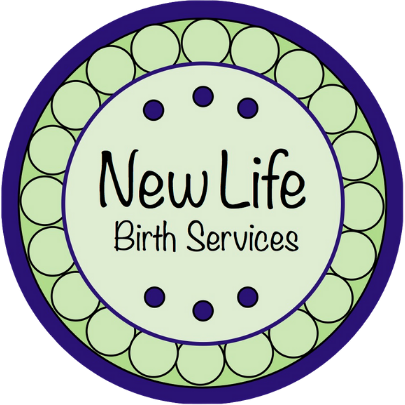What is Surrogacy?
All photos included in this post were graciously provided by Sarah at Hello Lovely Photography.
Birth Doula Mariah Duck recently went on a surrogacy journey, giving birth to a baby for another wonderful family. Surrogacy is often shrouded in a bit of mystery and many people have questions about the process. Mariah has graciously written this FAQ about her experience with surrogacy and we are so grateful that Mariah is sharing this wisdom with our community.
Mariah writes:
Surrogacy is defined by Yale Medicine as “a process in which a woman carries and delivers a child for a couple or individual.”
Now, that is a very simple explanation of being a surrogate, and people often have so many questions about the semantics of surrogacy.
Let’s start with some basic terminology to help better understand this post:
Intended Parents (often referred to as "IPs") – the parents of the child the surrogate is carrying
Gestational Carrier – (often referred to as the "GC") the woman who agrees to carry the child of the IP’s
Embryo – the egg and sperm create an embryo under the guidance of an embryologist in a lab and is frozen generally after the 5th day (this does vary but generally it is 4-6 days old)
RE – Reproductive Endocrinologist
Transfer – the process of implanting the 5-day-old embryo into the GC’s uterus
Independent – A surrogacy journey that does not use an agency to guide them along
Next, I will address some of the questions I am most frequently asked. I do want to stress that every single journey is different and that this post reflects only my personal journey and not every surrogate’s journey.
WHAT MADE YOU WANT TO BECOME A SURROGATE?
Well, this idea first formed after I witnessed the infertility journeys of several close friends. I always felt frustrated that I was as fertile as I was, and that I did not want my fertility. In fact, I had my tubes tied two months after having our daughter. I have always said that I wish I could tie my fertility up in a little box and give it away. This idea really came to full fruition as I am a birth and postpartum doula who has supported many people through their birthing experiences. Several times in watching my clients during labor, they would reach a point of “I just need a break” and I always found myself wishing I could give them a break and take over for them. I also realized that I wanted to experience birth again knowing what I know now as a doula (I was not a doula during the birth of my two children). So, with these factors, I decided I would love to become a surrogate. I brought the idea to my husband and after he laughed and quickly realized I was dead-serious; he was fully on board. This began a very long process of researching. I researched for roughly 2.5 years before beginning the process and frankly, I still did not know enough going in! Surrogacy is definitely one of those things that you learn SO much as you go along.
WHAT ARE THE REQUIREMENTS TO BECOMING A SURROGATE?
There are quite a few considerations for becoming a surrogate and there are really no overseeing or mandating agencies involved, however the American Society for Reproductive Medicine has set forth these guidelines that all ethical REs follow.
Ideal candidates are aged 21-42 years old; should have had no more than 3 deliveries via cesarean section; do not smoke, abuse alcohol or prescription meds, or use illicit drugs; should not be receiving any welfare, public housing, or cash assistance from the government; have carried at least one child of their own to term without complications; should have a stable home life with emotional and childcare support; should have a BMI of no more than 32; and should have no mental health conditions that have required the use of medications within the last 6 months. There is very firm reasoning for each of these for which I don’t have enough space to go into full detail, but these are generally non-negotiable requirements.
The surrogacy process itself requires a fertility clinic, two separate lawyers, insurance companies and brokerages, escrows, OB/GYNs or midwives, court filings, and a very lengthy, detailed contract.
HOW DID YOU START THIS PROCESS AND FIND YOUR IPS?
I started out with an agency that was truly wonderful. I met with two sets of intended parents, but neither felt “right” to me. I started to get concerned that I had over-romanticized surrogacy and that it wasn’t going to be some magical connection. Completely unrelated, I took my daughter to a salon to get bangs (which she had been asking for forever), and the girl doing my daughter’s hair was an old friend. She and her mom worked together at the salon. I was telling her about my process of becoming a surrogate and she told me that her mom had just heard of someone looking for a surrogate that week. We both laughed at what a weird coincidence it was. Later that evening, she asked if she could put me in contact with the woman who was looking for one and I said sure! I very much assumed she just had questions about the process. I had no clue she was 100% ready and had everything in place except for a surrogate! We met and instantly clicked. I knew that they were the couple whose baby I was supposed to carry. This led me to on an independent surrogacy journey (no longer with the agency).
DO YOU HAVE TO TAKE MEDS/HORMONES?
Yes. The process is long but essentially the gestational carrier will go through IVF to "trick" her body into thinking it is pregnant. She will begin birth control, hormones, and ovulation suppression meds (not all at once) about 1-2 months before the transfer. Then, once you begin progesterone for 5 days (a hormone produced during pregnancy) the embryo transfer occurs and you will continue hormones via injections until the placenta forms and takes over hormone production (roughly around 10-12 weeks).
IS THE BABY YOURS? / WHAT GENETICS CREATE THE BABY? / DO YOU FEEL ATTACHED TO THE BABY?
These questions are definitely the most asked in some form or manner. In short, no. A gestational surrogacy is a surrogacy in which the embryo implanted into a carrier’s uterus is entirely unrelated to the carrier. In my case, the embryo was created from my Intended Mother’s egg and Intended Father’s sperm. So, the baby was 100% genetically from her parents and not related to me in any way.
Some journeys use a donated egg so it is not genetically related to one or both of the IPs, but the baby is still theirs! In traditional surrogacy (which is far less common and very rarely practiced anymore) the surrogate is inseminated with donor sperm and her own eggs are used, in which the child produced is indeed related to the carrier. This process is much different as the carrier then has to sign over parental rights to the child. We won’t be talking about this process much, but it does exist!
My feelings towards my "belly buddy" (which is what I called the baby I carried) are similar to those of an aunt or how one may feel about their best friend’s children. I always say “I love her, but I am VERY happy she goes home with her mom and dad.”
DID YOU HAVE A HARD TIME GIVING HER UP/AWAY?
Again, this baby was never mine. I have always viewed myself as just the oven! I "cooked" a beautiful, healthy little girl who was delivered into the arms of her sweet momma. I have never felt as though I gave her away or that she was mine in any way, shape, or form.
DO YOU STILL TALK TO THE FAMILY?
YES! This was a matching point for both my intended parents and myself. I was open to whatever relationship they wanted, but it was important to my Intended Mother that we maintain a friendship and if my belly buddy ever wanted to reach out to me and meet me, that she was able to do that.
We still have family dinners, talk on the phone every once in a while, and check in with each other. My IM and I are the only two people on this planet who knows what the other has been through in the way that we have, and we are forever bonded because of that. Not every journey has that and not every IP/surrogate pair wants that, and THAT IS OK! Every single journey is very different and this is only mine.
HOW MUCH DO SURROGATES GET PAID?
This question varies WIDELY and is truly specific to each journey and location. In some countries and states, compensated surrogacy is illegal. So, some surrogates are altruistic, which means they do not receive compensation, but sometimes they receive payment in other forms (mortgage, cars, etc. being paid while pregnant).
If surrogacy is something you are looking into, I recommend researching typical compensation for a first-time carrier and going from there. One of the most common things I have heard regarding payment is from people who wanted to do it altruistically and did not realize how much of a commitment the entire process is. Please have a very good idea of the process when deciding if you’d like to do this, as well as how much you would like to get paid.
WILL YOU DO IT AGAIN?
I honestly cannot believe how often I am asked if this is my first time or if I will do it again. It makes me laugh a little because ONCE IS A LOT AS IT IS! Haha! This is truly the golden question and I have absolutely no idea. You have to wait one year between journeys and I am thankful for that because I need time to make this decision.
I had the most incredible birth (shout out to my amazing birth team including my doula, Jaelan!!) and I am scared to chance ending my surrogacy journey with a difficult birth. Every pregnancy and birth are so very different, and the risks for complications raise drastically with IVF pregnancies, surrogacy, and subsequent pregnancies/births. I truly am not sure if I am willing to risk it. If I could be promised that there wouldn’t be any issues, I would do it again in a heartbeat. Besides birthing my own children, this was the most amazing thing I have done and I am so incredibly thankful to have been chosen to be a part of my belly buddy’s life story.






